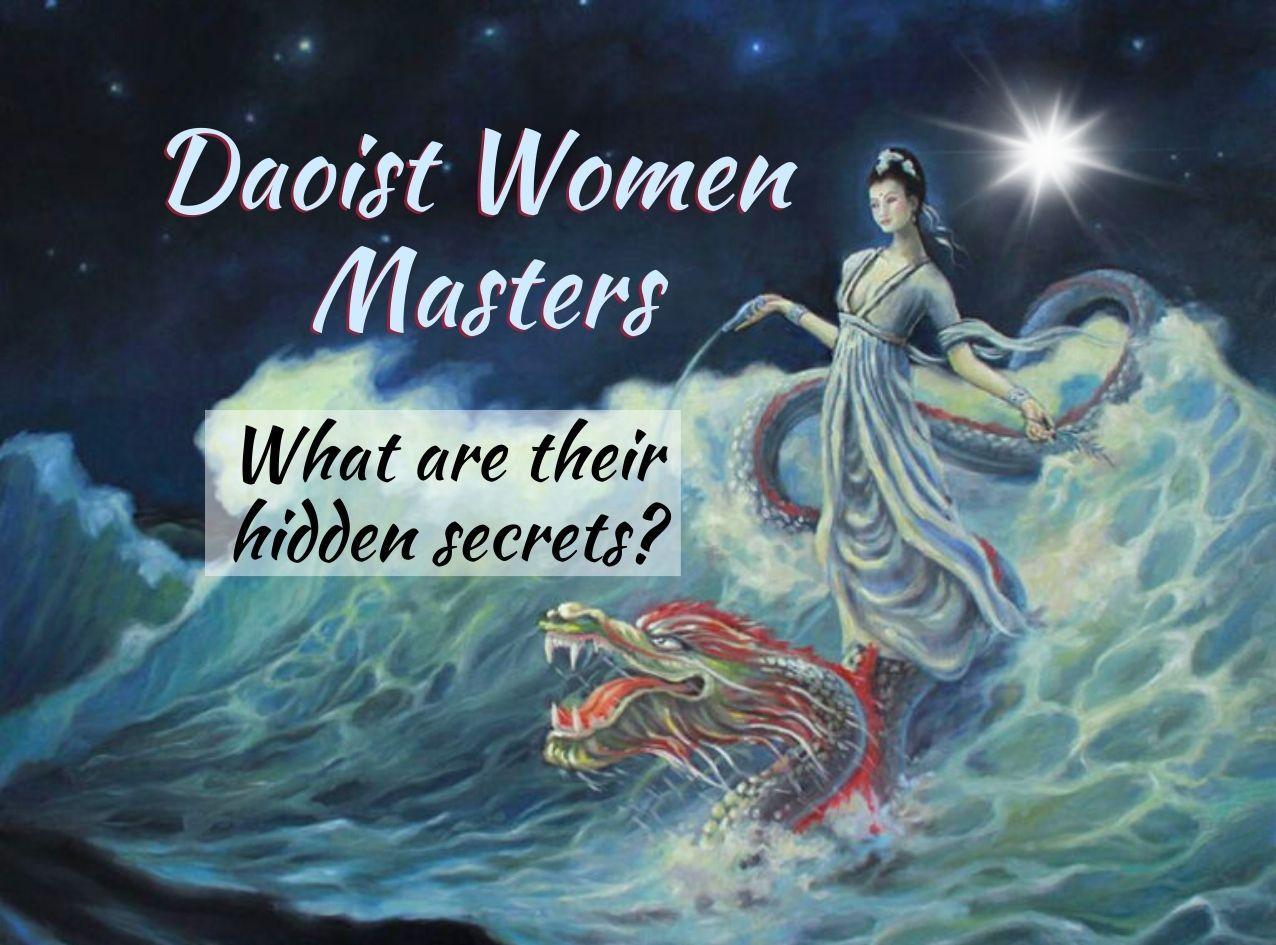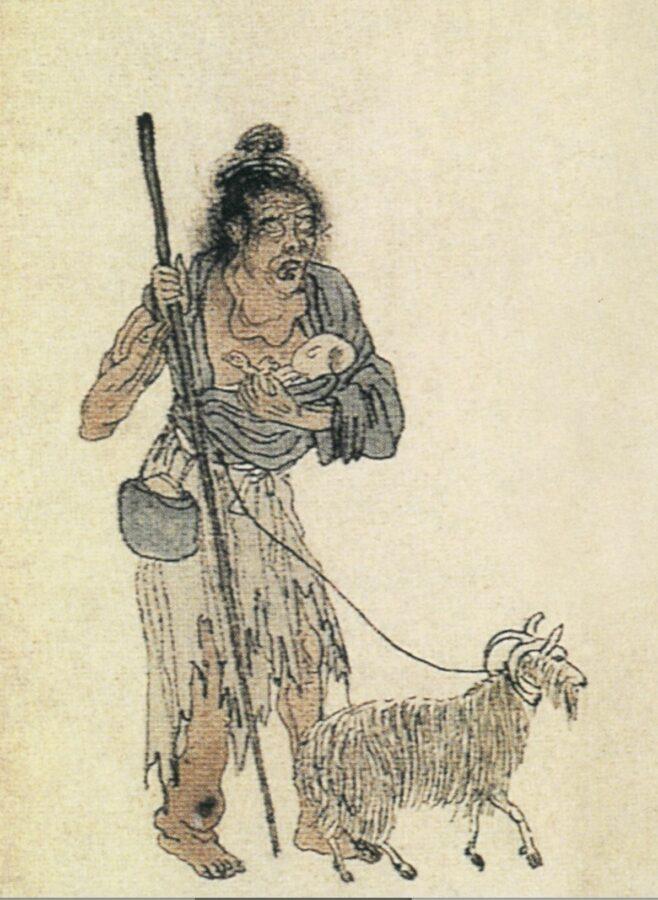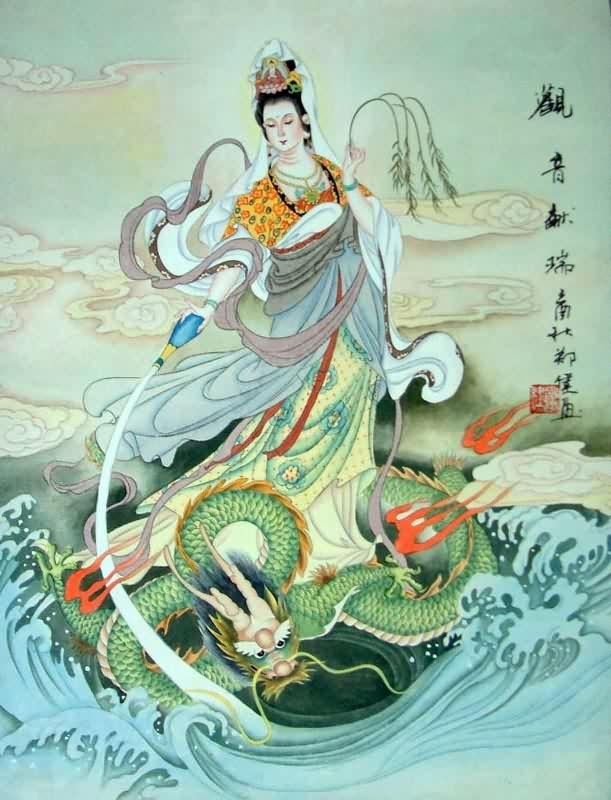Who were these female masters? Are they legend, myth, or reality? They practiced esoteric Daoist meditation, smiled, and kept their secrets. They lived for hundreds of years, and then ascended, leaving the physical world forever. What can we glean from them?
- He Xiangu: She consumed mica dust to purify her body, then ascended when a strange visitor gifted her a peach of immortality.
- Huang Lingwei lived into old age, died without disease, and vanished from her coffin.
- Why did the mysterious “Wild Hairy Old Woman” live alone in the forest and take no grains?
- Bian Dongxuan: She fasted for forty years and left in broad daylight after drinking the elixir of immortality.
- How did Li Zhenduo, woman of the Red Elixir, live for hundreds of years and ascend in broad daylight?
- How did Taiyang Nü at 300-years of age, always appear to be a 17-year old girl?
Daoism is the indigenous spiritual practice of traditional China. Growing from a shamanic root and developing through techniques of longevity and immortality, it has a lineage of many thousands of years. Daoists view expanded feminine powers integrating motherhood, sexuality, fertility, esoteric knowledge, and mysterious advanced abilities. These six amazing ladies abandoned the fold of family safety, motherhood, and society to explore extraordinary dimensions.
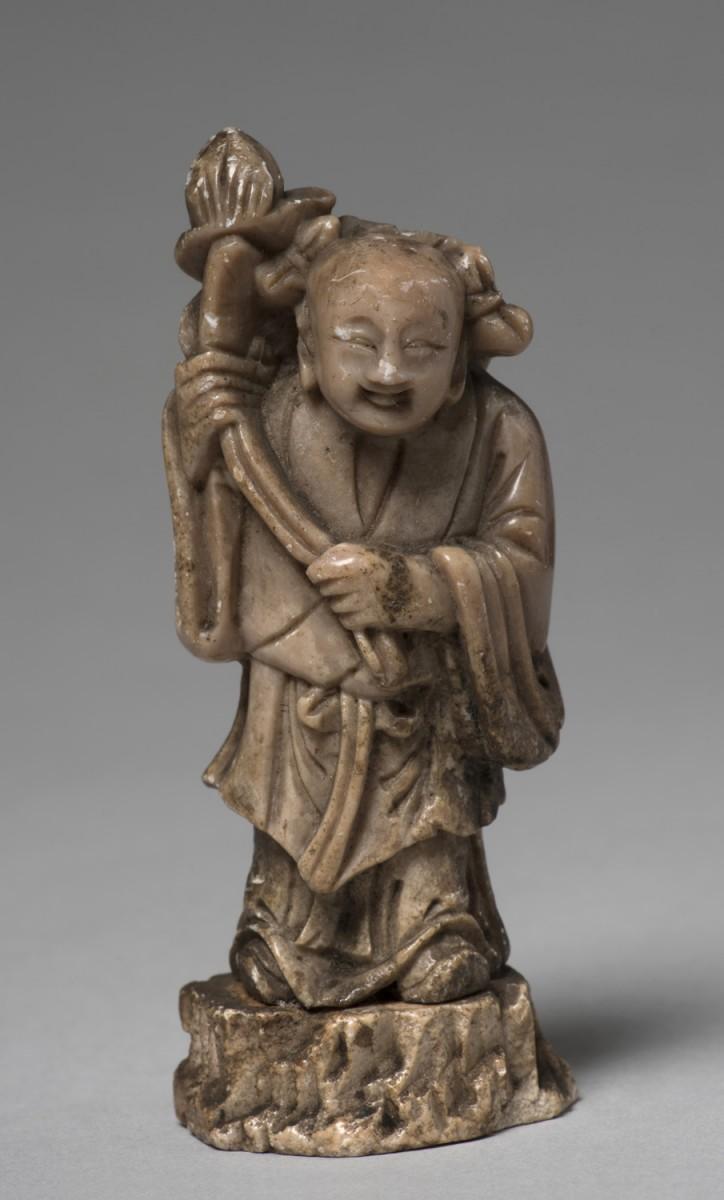 1. Who Was “He Xiangu”, the Woman who ate the peach of immortality?
1. Who Was “He Xiangu”, the Woman who ate the peach of immortality?
Her name is “He Xiangu”, which means “Immortal Woman”. She is the only legendary female deity among the Eight Immortals. She lived in The Tang Dynasty, the 7th Century CE. She was said to carry a talisman of a long-stalked lotus flower which could miraculously revive health and promote spiritual joy. She is also often pictured with a flute and a bird called fenghuang.
When she was born, she had six very long hairs on the crown of her head. When she was about fourteen, He Xiangu had a visitation by a divine personage where she was instructed to eat powered mica stone to make her body lightweight and be immune to death. After that she did eat powdered mica and ate less and less. She vowed to stay a virgin, to keep her body pure for immortality.
Over time she gave up normal food, and ate only fruits which she gathered on the mountain. Legend says that He Xiangu met Lu Dongbin, one of the Eight Immortal Sages, who invited her to study Daoism to achieve immortality. Lu Dongbin apparently also gifted her a very special a peach. It is said this is the peach which made her immortal.
Shortly after she ate the peach, her parents arranged He Xiangu’s marriage. She didn’t voice her opinion on the matter. Except on the wedding day He Xiangu was mysteriously missing from her bedchambers, and left a handwritten poem on a silk screen, which her parents did not understand.
A few years after this incident a Daoist priest came down from Luofu Mountain to her parents’ house. He carried with him, and told them he was returning the shoes of a Daoist nun. That’s how her parents learned she had gone to a monastery to study Daoism.
It is said that the Great Empress Wu heard about He Xiang, and summoned her to visit the Empress’ royal palace. But while on the way to see the Empress, it is said He Xiangu literally disappeared. Later in 707 CE during the Jing Long period it is said that He Xiangu ascended to Heaven in broad daylight.
2. Huang Lingwei lived into old age, died without disease, and vanished from her coffin.
Huang Lingwei lived during the Tang Dynasty黄靈微 (640-721 CE). She was called by her friends “the Flower Maid”, referring to her love of flowers and her celibate unmarried state. There is no record of Huang Lingwei’s birthplace, and we know nothing of her family or social class. She was always interested in studying Daoism. At the age of twelve, she was ordained as a daoshi nun. At the age of eighty, she was still as energetic as a young lady
When she was 50 years old Huang Lingwei searched for the shrine of a female Daoist predecessor, Wei Hua-cun, called “Lady Wei”, who had been “buried with great dignity”. But after three hundred years, her tomb was almost impossible to find in the forest. Huang Lingwei used her intuitive powers to locate Lady Wei’s shrine complex, and then renovated it.
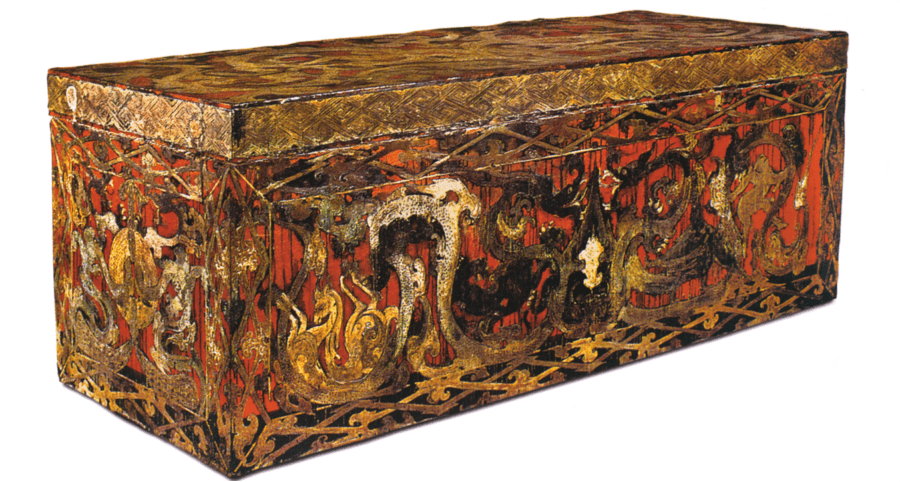
Huang Lingwei asked her disciples not to nail her coffin closed, but to cover it with a red cloth.
Next to the shrine she built a small hut for herself, and meditated by the shrine every day. Later in her life she had a few disciples. At age eighty, she told her disciples that she wished to ascend. She instructed them not to nail her coffin shut, but only to cover it with crimson silk cloth.
Huang Lingwei passed away during the night without ever suffering any illness. Her disciples buried her in the traditional manner in a coffin as she had requested. However they soon discovered that her coffin was empty, and there was a hole in the roof big enough for a person to pass through. Her body’s disappearance proved that she had successfully achieved transcendence through “liberation by means of the corpse”. (This is one means of achieving immortality. The other way is to ascend in broad daylight. Transcendants who achieve “liberation by means of the corpse” are said to leave the world by leaving “their physical bodies or a substitute behind when they ascend into the other world”.)
After her death, every year at the anniversary of her death, numinous transcendent light and sounds would appear around her old hut. Huang Lingwei was remembered as a quiet woman of humility, piety, and courage, who lived outside “traditional” norms.
3. Why did the mysterious “Wild Hairy Old Woman” live alone in the forest and take no grains?
It has been said that eating grains limits one’s lifespan. In Liu Xiang’s hagiography of Daoist xian, the Liexian Zhuan “Collected Biographies of Immortals”, he tells the famous “Wild Old Woman”, who lived on resin and nuts of pines, and practiced grain avoidance.
“During the reign of Emperor Cheng of the Han, hunters in the Zhongnan Mountains saw a person who wore no clothes, his body covered with black hair. Upon seeing this person, the hunters wanted to pursue and capture him, but the person was able to leap over gullies and valleys as if in flight, and so could not be overtaken.
The hunters then stealthily observed where the person dwelled, surrounded and captured him, whereupon they determined that the person was a woman. Upon questioning, she said, “I was originally a woman of the Qin palace. When I heard that invaders from the east had arrived, that the King of Qin would go out and surrender, and that the palace buildings would be burned, I fled in fright into the mountains. Famished, I was on the verge of dying by starvation when an old man taught me to eat the resin and nuts of pines. At first, they were bitter, but gradually I grew accustomed to them. They enabled me to feel neither hunger nor thirst; in winter I was not cold, in summer I was not hot.”
Calculation showed that the woman, having been a member of the Qin King Ziying‘s harem, must be more than two hundred years old in the present time of Emperor Cheng. The hunters took the woman back in. They offered her grain to eat. When she first smelled the stink of the grain, she vomited, and only after several days could she tolerate it. After little more than two years of this [diet], her body hair fell out; she turned old and died. Had she not been caught by men, she would have become a transcendent.”
4. Bian Dongxuan: She ascended in broad daylight after drinking the elixir of immortality
As a young woman, Bian Dongxuan (邊洞玄) (628-711 CE) was regarded as “lofty and pure, humane, and compassionate”. At fifteen-years, to prepare to enter the Dao she “refined her body by eliminating grains to nourish her vital energy”. She collected grains and rice anyway, and gave it away to hungry birds during freezing cold winters.
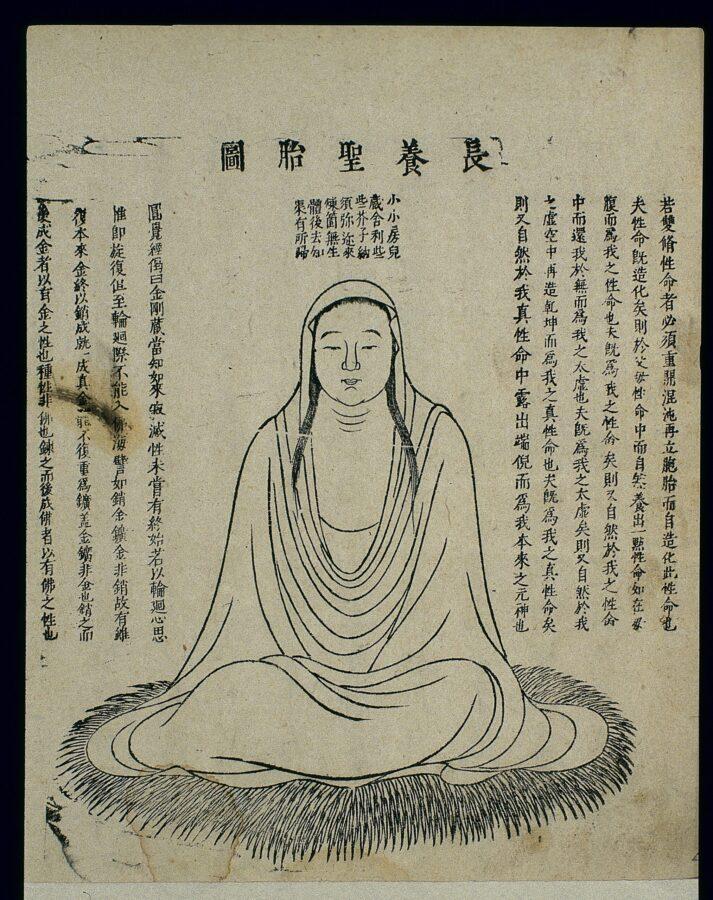 When she reached marriage age, Bian vowed never to marry, but to take care of her parents instead. After her parents died, she mourned their deaths and joined a Daoist temple. She was very talented at weaving, and could work from dawn to night without taking rest. She was said to have fasted for thirty years. Whenever she had a little money, she would buy the five grains. Everyone wondered why she bought the food that she never ate, but she just smiled. When she was alone, every day she spread food out for the birds and the animals. She also gave food to people during famine.
When she reached marriage age, Bian vowed never to marry, but to take care of her parents instead. After her parents died, she mourned their deaths and joined a Daoist temple. She was very talented at weaving, and could work from dawn to night without taking rest. She was said to have fasted for thirty years. Whenever she had a little money, she would buy the five grains. Everyone wondered why she bought the food that she never ate, but she just smiled. When she was alone, every day she spread food out for the birds and the animals. She also gave food to people during famine.
Bian Dongxuan studied elixir medicines and her passion was to experiment with medicinal potions even if they made her ill. She just continued to fast, drank her special elixirs, and distributed food to the needy. After many years, an old Daoist immortal showed up at the temple and brought Bian Dongxuan the elixir drug of immortality. After her forty years of fasting and silent virtue, he gave her the high-grade drug and told her to prepare for transcendence in seven days.
When the day came, she departed on purple clouds, and a delicious fragrance filled the courtyard of the temple. Bian Dongxuan ascended to Heaven in broad daylight, and it was witnessed by many people. Many people were inspired by her ascension, including the emperor’s sister, Princess Jade Verity, who entered a convent.
Daoist monks and nuns fasted for a long period of time, yet still enjoyed optimum health and energy. Fasting was called “bigu” 辟谷. This meant “to restrain from grains”, and it was normal for Daoist practitioners. Fasting in Daoism is a tool to purify one’s body in order to still the mind. Both women and men in Daoist China fasted and remained celibate. Many considered food or sensual desires to be obstacles for both genders. Monks would traditionally give up wealth, public positions, and family ties. Nuns also gave up household life, childbearing, and family connections when they joined a convent.
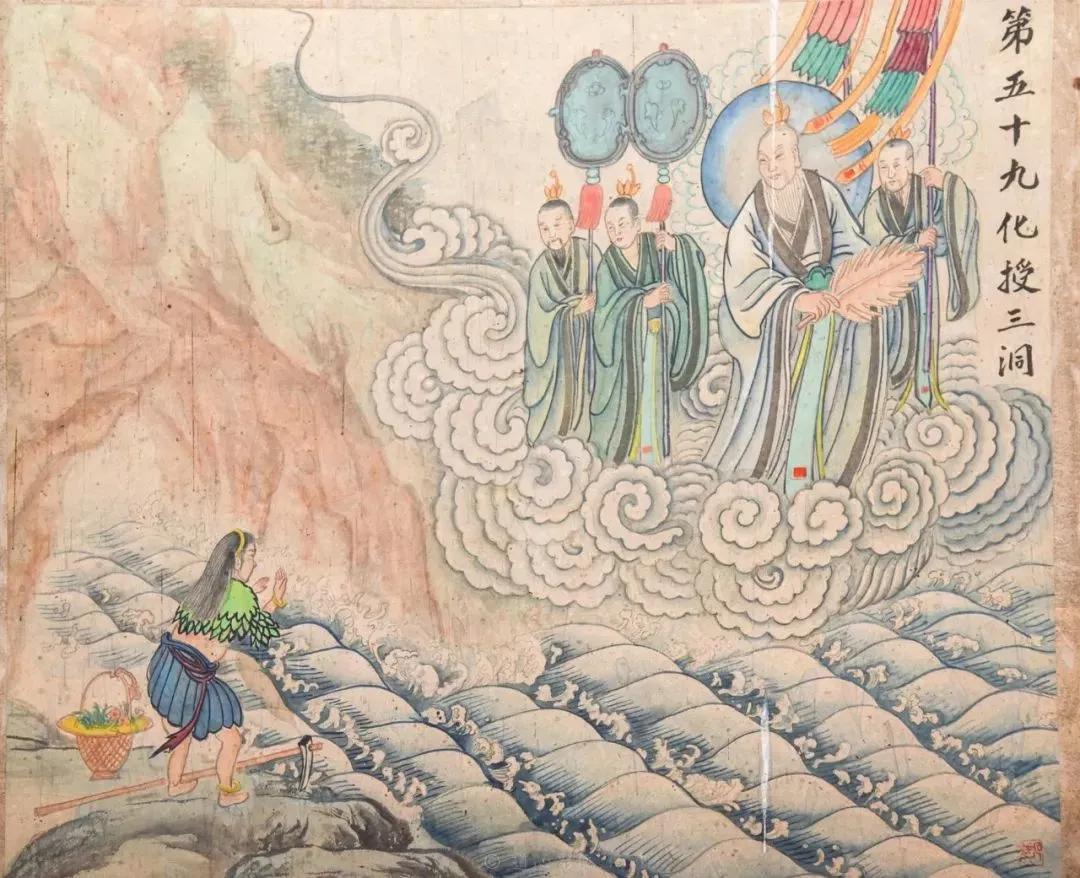
5. How did Li Zhenduo, woman of the Red Elixir live for hundreds of years and ascend in broad daylight?
The legendary woman Li Zhenduo cultivated the Dao and obtained immortality. She is said to have had supernormal abilities, lived for hundreds of years and never grew old. Li Zhenduo was the younger sister of Li Tuo, an immortal who cultivated the Tao at the Long Qiao Peak, Jin Tang Mountain in Western Shu (today’s Sichuan Province). The people of Sichuan saw Li Tuo for many dynasties, over a span of some eight hundred years so Li Tuo was, hence, known as Li Babai, meaning “lived for 800 years”.
Li Zhenduo was born with immortal countenance and admired profound cultivation methods. She followed her brother in cultivation and lived at Mian Zhu on Fu Mountain. The historic site of Li Zhenduo’s cultivation still exists. Li Babai taught her the important formula of a cultivation method known as Chao Yuan Mo Zhen, in which she practiced for a few hundred years. After several hundred years Li Zhenduo still appeared to be a twenty year-old maiden. Her spirit and manner were graceful and solemn. She had the spiritual strength and magnificence of a hero, which differentiated her from those vulnerable willowy maids. When people sometimes saw her, they would not dare to look her in the eyes.
It is said that famous immortals such as Tai Shang Lao Jun and Xuan Gu San Shi descended to lead and guide her. They taught her how to levitate. When it was her time to leave, Li Zhenduo actually soared into the sky in broad daylight before Li Babai.
The water there is always red in color. It was believed that the red water was an original ingredient for the elixir. On Fu Mountain, also known as Wan An Shan (Mountain of Absolute Tranquility), there was a well known as the Er Shi Well (or Well of Two Masters). It is alleged that drinking water from that well cures illnesses. The place has been renamed “Zhenduo Well” in memory of Li Zhenduo.

6. How did Taiyang Nü at 300-years of age, always appear to be a 17-year old girl?
Taiyang nü, was a Legendary Woman of Great Yang. By practicing controlled breathing, she reached high longevity. Even at the advanced age of 280 still looked as if she was only seventeen. She had a complexion like peach blossoms, a mouth of cinnabar redness, vibrant and smooth skin, glossy black hair and eye brows. Working together with an advanced master, she completed the elixir of immortality and ascended to heaven with him.
As the Zhen’gao says: “A person cannot attain immortality either if he only knows the bedroom arts of comingling Qi, and other methods of guiding Qi. One must acquire the methods of the divine elixir, which will suffice to become immortal. Even better, if one gets hold of the Dadong zhenjing (Perfect Scripture of Great Profundity), even the way of the golden elixir will become irrelevant. Reciting this text ten thousand times is the best way to become immortal.”
Immortal Daoists Cultivate Qi as Breath, Food, and Sexual energy.
The key characteristic of immortals is the transformation that happens in and to the body of the practitioner. Refining their inner Qi to higher levels of subtlety, these immortals become etheric beings, feathery, sometimes hairy, with no need to eat or drink and completely invulnerable to heat and cold, fire and water. Light as ether, they can appear and vanish in an instant, and despite their advanced years look young, fresh, and radiant. The main techniques leading to this wondrous state involve the refinement of Qi, which is taken into the body as breath, food, and sexual energy. Immortals practice control in these areas. First, they harness the breath through methods of “expelling the old and inhaling the new” (tugu naxin). An early example of this path is Zhu Yi, a selection of immortal women’s biographies.
Longevity and Female Sexual Cultivation
Daoist practices of sexual arousal are considered a clear way to harmonize Yin and Yang. These practices vary widely throughout the many spiritual traditions of China. Longevity practices transform Jing or “Essence” into Qi, which naturally transforms into Shen or “Spirit.” Sexual arousal with or without intercourse activates Jing deep in the body. When Jing is tangible as in sexual arousal, then with breath, meditation, and concentration the Jing can be enhanced to augment life force.
There are many Daoist sexual cultivation techniques. Practiced with or without a partner, they uses sacred meditation, visualization and sometimes chanting to arouse the body to the point of climax. Men must practice retention, to reabsorb the ejaculate back into the body, in order to not lose Qi, as the fluid is rich in vital force. This is done by contracting the perineum at peak climax. Retention helps to build Jing, ancestral energy residing in the kidneys for long life. Women practice their own anatomical arousal and may climax fully, as this is very beneficial to vitalize the Qi pathways and increase longevity.
What is Qi?
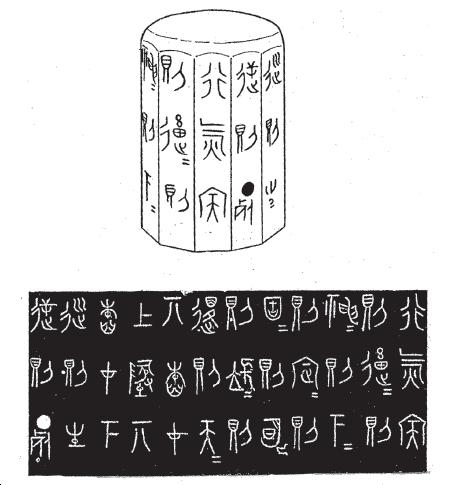 The first known record of Qi as a physical breathing practice occurs in a short script engraved on a jade belt pendant dating from around the 4th century BCE. Here is Harper’s translation of the breathing technique to cultivate Qi:
The first known record of Qi as a physical breathing practice occurs in a short script engraved on a jade belt pendant dating from around the 4th century BCE. Here is Harper’s translation of the breathing technique to cultivate Qi:
- “Swallow, then it travels; traveling, it extends;
- extending, it descends;
- descending, it stablizes;
- stablilizing, it solidifies;
- solidifying, it sprouts;
- sprouting, it grows;
- growing, it returns;
- returning, it is heaven.
- Heaven—its root is above;
- earth—its root is below.
- Follow the pattern and live;
- go against it and die.”
If we are looking for Qi parallel terms across the ancient world, we see Qi is closely linked with Life Breath, Prana, and Pneuma, the “soul breath” in Greek. It’s interesting that it begins with a “SWALLOW”. The Daoist “Breath” is very different from the breathing we consider “normal”. This ancient explanation of breath remains crucial as a focus for meditation practice.
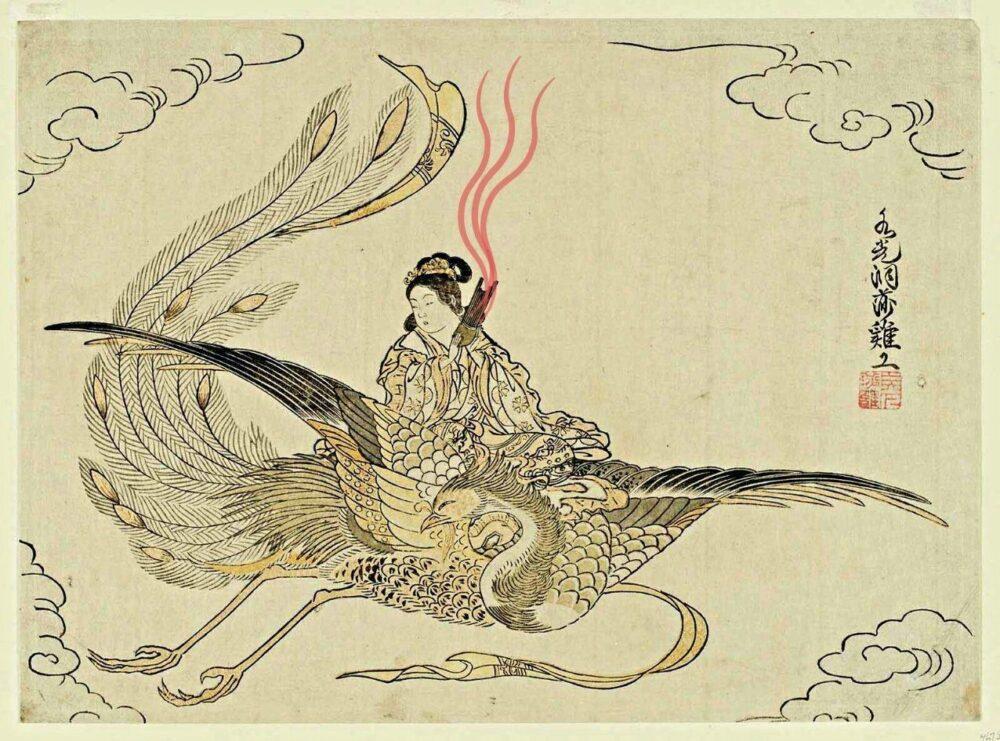
Source: https://getd.libs.uga.edu/pdfs/du_meizhu_200608_ma.pdf
Thanks for joining!
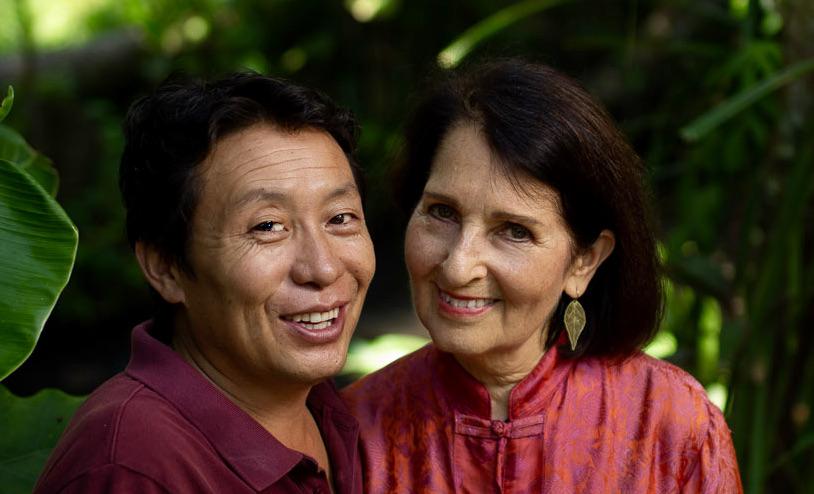 Srijana, aka Jane Barthelemy is a medical intuitive, author, and healer. She has practiced Tibetan Buddhist meditation for over five decades, residing in the Rudrananda Ashram in the USA for 35 years. She practices craniosacral therapy, Acunect, and BodyTalk – an infusion of intuitive Chinese, and Ayurvedic wisdom. She is trained in Qigong, Taichi, Daoist sexuality, and Kundalini activation. Her medical Qigong training is with Mantak Chia, Khamto Lee, Daniel Villasenor, Zhongxian Wu, Dr. Ka’imi Pilipovich, Franco Mescola, Richard Leirer, and Lam Kam Chueng. She has her BS in Italian Opera and MBA in financial management. Her two paradigm-changing cookbooks show how to build health with unprocessed foods. Her upcoming books include: “Heal Your Past Lives”, and “Buddha Speaks – Channeled Passages from the Master”. She is on the faculty of NewEarth University and LearnDesk. Her websites are FiveSeasonsMedicine.com and JanesHealthyKitchen.com. Srijana lives in Bali with her Bhutanese husband, Lama D.
Srijana, aka Jane Barthelemy is a medical intuitive, author, and healer. She has practiced Tibetan Buddhist meditation for over five decades, residing in the Rudrananda Ashram in the USA for 35 years. She practices craniosacral therapy, Acunect, and BodyTalk – an infusion of intuitive Chinese, and Ayurvedic wisdom. She is trained in Qigong, Taichi, Daoist sexuality, and Kundalini activation. Her medical Qigong training is with Mantak Chia, Khamto Lee, Daniel Villasenor, Zhongxian Wu, Dr. Ka’imi Pilipovich, Franco Mescola, Richard Leirer, and Lam Kam Chueng. She has her BS in Italian Opera and MBA in financial management. Her two paradigm-changing cookbooks show how to build health with unprocessed foods. Her upcoming books include: “Heal Your Past Lives”, and “Buddha Speaks – Channeled Passages from the Master”. She is on the faculty of NewEarth University and LearnDesk. Her websites are FiveSeasonsMedicine.com and JanesHealthyKitchen.com. Srijana lives in Bali with her Bhutanese husband, Lama D.



